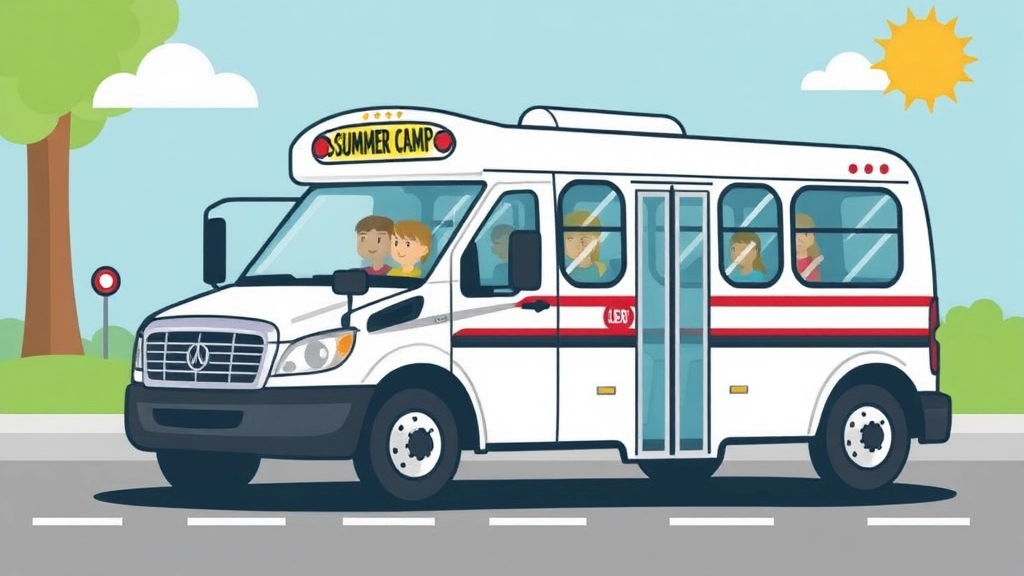Ensuring Safe Transportation to Summer Camp
Ever wondered how to ensure your child gets to summer camp safely and on time? Navigating the myriad options for summer camp transportation can be daunting, but it’s a crucial part of planning your child’s summer adventure. From buses and coaches to parent carpooling and third-party providers, this article dives into the various transportation options available, highlighting the pros and cons of each. We’ll also discuss essential safety measures, the convenience of scheduling, and special considerations for overnight camps and campers with special needs.
Whether you’re curious about the costs involved, the reliability of shuttle services, or how to ensure your child’s safety during field trips, we’ve got you covered. We’ll explore everything from the qualifications of drivers to the importance of parental involvement and communication. By the end of this article, you’ll have a comprehensive understanding of how to make the best transportation choices for your child’s summer camp experience, ensuring peace of mind and a smooth, enjoyable journey for everyone involved.
Types of Summer Camp Transportation Options
Alright, let’s dive into the nitty-gritty of summer camp transportation options. I know, it’s not the most glamorous topic, but trust me, it’s crucial. Parents are always worrying about how their kids will get to camp safely and on time. And honestly, who can blame them? So, let’s break it down.
Buses and Coaches
First up, we’ve got buses and coaches. These are the big guns of camp transportation. They can haul a lot of kids at once, and they’re usually equipped with all the safety features you’d expect. Think seat belts, air conditioning, and sometimes even Wi-Fi. Yeah, you heard that right, Wi-Fi. It’s like a mobile classroom, minus the boring stuff.
- Pros:
- Can transport large groups
- Generally cost-effective
- Often have safety features
- Cons:
- Less flexibility in routes
- Can be intimidating for younger kids
Vans and Minibuses
Next, we’ve got vans and minibuses. These are perfect for smaller groups. They’re more flexible and can navigate those tricky, winding roads that big buses can’t. Plus, they’re less overwhelming for the little ones.
- Pros:
- More flexible routes
- Ideal for smaller groups
- Easier for younger kids to handle
- Cons:
- Limited seating
- Can be more expensive per child
Parent Carpooling
Now, let’s talk about parent carpooling. This is the old-school way, but it’s still super effective. Parents team up and take turns driving the kids to camp. It’s a great way to build community and save on fuel costs.
- Pros:
- Cost-effective
- Builds community
- Flexible scheduling
- Cons:
- Requires coordination
- Limited to local families
Public Transport
Then there’s public transport. This is less common but can be a viable option for camps located near urban areas. It’s not ideal for younger kids, but older campers might find it an adventure.
- Pros:
- Cost-effective
- Eco-friendly
- Cons:
- Less control over timing
- Not suitable for younger kids
Private Cars
Finally, we’ve got private cars. Some parents prefer to drive their kids to camp themselves. It gives them peace of mind, and let’s be honest, who doesn’t love a good road trip?
- Pros:
- Maximum control
- Peace of mind for parents
- Cons:
- Time-consuming
- Not eco-friendly
For more tips on ensuring a smooth camp experience, check out our guide on coach bus rentals for summer camps. And if you’re looking for ways to make the journey more enjoyable, don’t miss our summer camp activity ideas to keep the kids entertained!
Safety Measures in Summer Camp Transportation
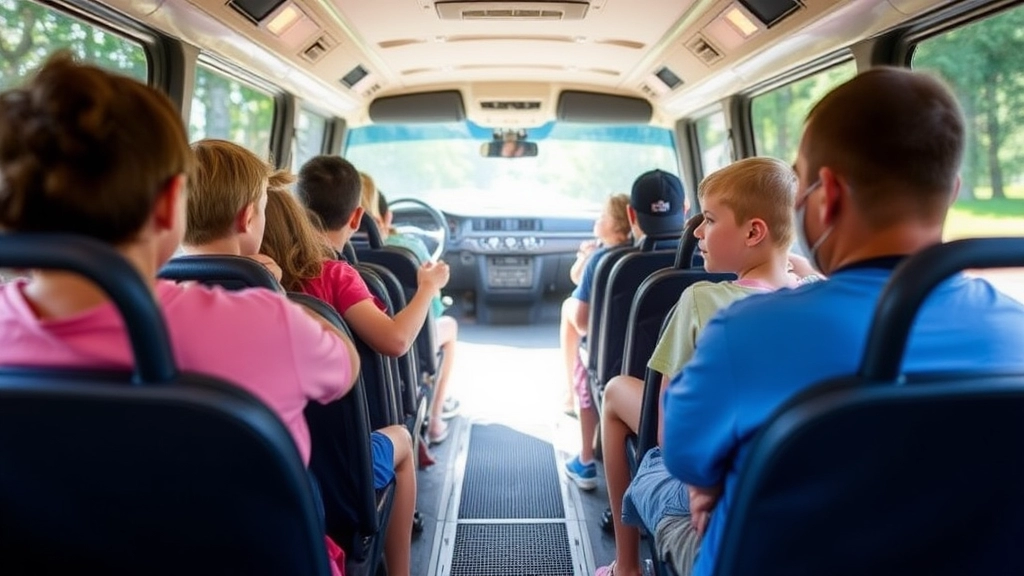
Alright, let’s talk about something every parent worries about: safety measures in summer camp transportation.
Is my child safe on the bus?
Are the drivers qualified?
These are the real questions we all have.
When it comes to summer camp, transportation safety isn’t just a checkbox. It’s a priority.
Why Safety Measures Matter
First off, safety measures in summer camp transportation are crucial. No fluff here. It’s about getting your kids to camp and back home without a hitch.
So, what makes transportation safe?
Qualified Drivers
- Background Checks: Every driver should have a thorough background check. No exceptions.
- Training: Drivers need special training for handling kids. They’re not just ferrying adults around.
- Experience: Look for drivers with years of experience, not newbies.
Well-Maintained Vehicles
- Regular Inspections: Buses and vans should undergo regular inspections. Mechanical failures? Not on our watch.
- Safety Features: Seat belts, first-aid kits, and emergency exits are non-negotiables.
Supervision and Monitoring
- Chaperones: Having adults on board to supervise is a game-changer.
- Cameras: Some camps even use cameras inside the buses for added security.
Emergency Procedures
- Drills: Regular emergency drills teach kids what to do if something goes wrong.
- Communication: Direct lines of communication between the bus and the camp are essential. No one likes being in the dark.
Real Stories, Real Safety
I remember one camp where a kid had a medical emergency on the bus. Because of the rigorous safety measures, the driver knew exactly what to do. The chaperone had a first-aid kit ready, and they got the child to a hospital in no time.
Safety measures? They saved the day.
What Parents Can Do
- Ask Questions: Don’t be shy. Ask about the safety measures in place.
- Check Reviews: Look for camps with positive reviews specifically mentioning transportation safety.
- Stay Informed: Make sure you know the emergency procedures and who to contact.
Shuttle Services for Campers
Ever wondered how your child is going to get to camp safely and on time? Shuttle services for campers might just be the answer. Let’s dig into what makes these services a great option for summer camps.
Why Choose Shuttle Services?
Parents often worry about the logistics of getting their kids to camp. Is the transportation safe? Is it reliable? Here’s why shuttle services are a solid choice:
- Safety First: Professional drivers with background checks.
- Reliability: Scheduled pickups and drop-offs that stick to the clock.
- Convenience: Saves parents from the daily drive.
Real-Life Example
Imagine this: It’s the first day of camp, and the excitement is palpable. You’re sipping your morning coffee, knowing your child is on a shuttle with their friends, heading to a day full of adventures. No rush, no fuss.
Features of a Good Shuttle Service
When choosing a shuttle service, look out for:
- Comfortable Seating: Kids need space to relax.
- Air Conditioning: Essential for those hot summer days.
- Tracking Systems: Know where the shuttle is at all times.
- Friendly Staff: Drivers and aides who are great with kids.
How to Book a Shuttle
Booking a shuttle service should be straightforward:
- Check Availability: Not all camps offer shuttles, so confirm first.
- Review Costs: Compare prices and what’s included.
- Schedule Flexibility: Make sure it fits your timetable.
- Sign-Up Process: Usually a simple online form.
Addressing Concerns
Parents often worry about the reliability of these services. Here’s how shuttle providers usually tackle these concerns:
- Regular Maintenance: Ensures vehicles are in top condition.
- Clear Communication: Updates if there are any delays.
- Emergency Protocols: Plans in place for unexpected situations.
For more tips on ensuring a smooth summer camp experience, check out our guide on summer camp essentials. Additionally, explore the fun activities at summer camp to keep your child engaged and excited throughout their camp journey.
Third-Party Camp Transportation Providers
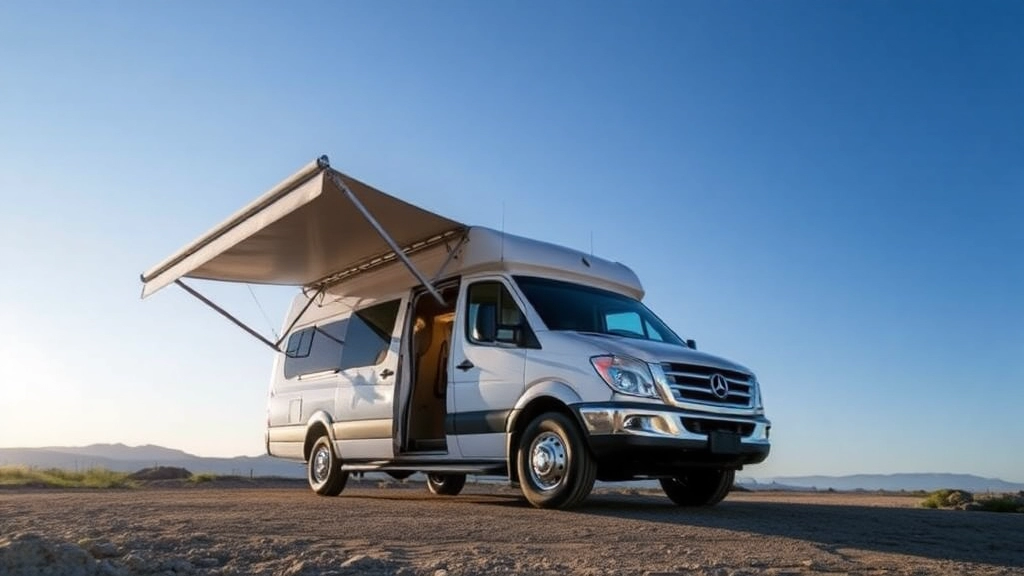
Ever wondered if third-party camp transportation providers are worth the hype?
Let’s break it down.
Why Consider Third-Party Providers?
First off, they can be a lifesaver. Literally and figuratively.
Parents often worry about the logistics of getting their kids to camp safely and on time.
Third-party providers take that stress off your shoulders.
Benefits:
- Professional Drivers: These folks know what they’re doing. They’ve got the training and experience.
- Reliable Vehicles: No need to worry about breakdowns. These companies maintain their fleets rigorously.
- Flexibility: They can often accommodate last-minute changes better than in-house options.
What to Look For:
When choosing a third-party provider, keep these points in mind:
- Reputation: Check reviews and ask around. Word of mouth is powerful.
- Safety Records: This is non-negotiable. Make sure they have a solid safety track record.
- Cost: Get quotes from multiple providers. Don’t just go for the cheapest; balance cost with quality.
Real Talk:
I remember a parent telling me about how a third-party service saved their summer.
Their car broke down the day before camp started.
Panic mode, right?
They called up a third-party provider, and boom—problem solved.
Kids got to camp, parents got peace of mind.
Pro Tips:
- Ask for a Trial Run: Some providers offer a trial run to ease your worries.
- Check Insurance: Make sure they have comprehensive insurance coverage.
- Communication: Choose a provider that keeps you in the loop with real-time updates.
Transportation Costs and Pricing
Alright, let’s dive into something that’s on every parent’s mind when it comes to summer camp transportation: costs and pricing. I get it, you want your kid to have an epic summer, but you also don’t want to break the bank. So, let’s break this down in a way that’s easy to digest.
What Are You Really Paying For?
When you’re looking at transportation options, you’re paying for more than just a ride. Here’s what’s typically included:
- Fuel Costs: This is a no-brainer. The further the camp, the more you’re likely to pay.
- Driver Fees: Qualified drivers aren’t cheap. You’re paying for their expertise and safety training.
- Maintenance: Those buses and shuttles need to be in top shape.
- Insurance: This covers any mishaps that might happen on the road.
- Additional Staff: Sometimes there are chaperones or counsellors on board to keep things smooth.
Types of Pricing Models
There are a few ways camps might structure their transportation fees. Here’s a quick rundown:
- Flat Rate: This is a one-time fee that covers the entire summer. It’s straightforward but can be pricey upfront.
- Per Trip: Pay each time your child needs a ride. This can add up quickly but offers flexibility.
- Distance-Based: The farther you live from the camp, the more you pay. Simple as that.
- Tiered Pricing: Some camps offer different packages (basic, premium) with varying levels of service.
Hidden Costs to Watch Out For
No one likes surprises, especially when it comes to money. Here are some hidden costs you might not think about:
- Late Fees: If you’re late picking up your kid from the drop-off point, some services will charge you.
- Special Trips: Field trips or special events might not be included in the standard fee.
- Last-Minute Changes: Need to change your schedule? It might cost you.
Real Stories from Real Parents
I remember chatting with a friend over coffee, and she was stressing about the cost of camp transportation. She ended up choosing a flat rate option, thinking it would be cheaper in the long run. Turns out, her kid missed a bunch of days due to illness, and she felt like she didn’t get her money’s worth. Another mate went with per trip pricing and found it added up quickly because of unexpected field trips. The lesson here? Do your homework and think about your specific needs.
Tips to Save Money
Everyone loves a good deal, right? Here are some tips to keep costs down:
- Carpooling: Team up with other parents to split the cost.
- Early Bird Discounts: Some camps offer discounts if you book early.
- Scholarships: Don’t overlook financial aid options that might cover transportation.
- Ask About Bundles: Sometimes camps offer a discount if you bundle transportation with other services.
Convenience of Transportation Scheduling
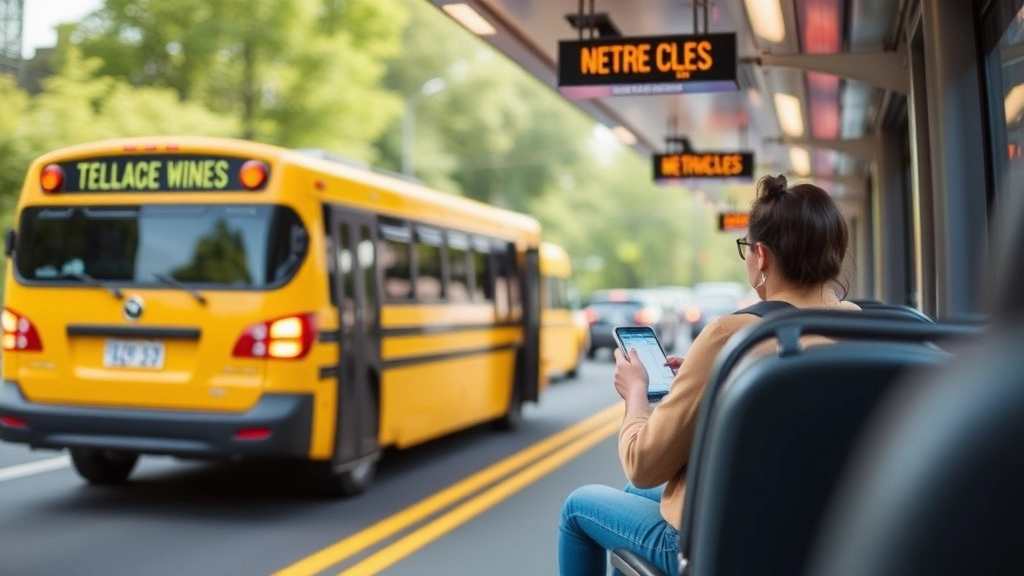
Ever tried to juggle work, errands, and getting your kid to summer camp on time?
Yeah, it’s a headache.
But here’s the thing: convenience of transportation scheduling can make or break your camp experience.
Why is it so crucial?
Let’s break it down.
Flexible Pick-Up and Drop-Off Times
Imagine if you didn’t have to rush out of a meeting to pick up your kid.
Flexible scheduling allows you to:
- Choose pick-up and drop-off times that fit your schedule.
- Avoid the stress of strict timing.
- Make life a whole lot easier.
Centralised Pick-Up Locations
Ever driven across town just to drop off your child?
Centralised locations mean:
- Less driving for you.
- More time for your own stuff.
- Lower fuel costs.
Real-Time Updates
What’s worse than waiting and not knowing where the bus is?
With real-time updates, you get:
- Instant notifications if there’s a delay.
- Peace of mind knowing your child’s location.
- A smoother, stress-free experience.
Customised Routes
Got a unique situation? No problem.
Some camps offer:
- Customised routes tailored to your needs.
- Special pick-up points close to your home or work.
- A personalised touch to make things seamless.
Weekend and Holiday Options
Ever needed camp services on weekends or holidays?
Some camps provide:
- Extended schedules covering weekends.
- Holiday pick-ups and drop-offs.
- More flexibility for busy parents.
Real Stories, Real Convenience
Sarah, a working mum, shared her story over coffee.
She said, “The flexible scheduling was a game-changer. I could finally manage my work and still get my son to camp on time.”
And she’s not alone.
Many parents find that convenient scheduling is a lifesaver.
Special Considerations for Overnight Camps
Ever worried about sending your kid off to an overnight camp? You’re not alone. Many parents have concerns about the logistics and safety of transporting their children to these camps. Let’s break it down.
Why Overnight Camp Transportation Matters
When it comes to overnight camps, transportation isn’t just about getting from A to B. It’s about ensuring your child is safe, comfortable, and ready for the adventure ahead. Here’s what we need to think about:
- Distance and Duration: Overnight camps are often further away, meaning longer travel times. This can be tiring for kids, so comfort is key.
- Safety Concerns: More distance means more chances for things to go wrong. Safety measures need to be top-notch.
Key Considerations
1. Comfort and Safety on the Road
Your kid will be on the road for a while, so let’s make sure it’s a smooth ride:
- Reliable Vehicles: Ensure the camp uses modern, well-maintained vehicles.
- Qualified Drivers: Drivers should have the right licenses and experience with kids.
- Safety Protocols: Seat belts, first aid kits, and emergency contacts are non-negotiables.
2. Communication is Key
Keeping parents in the loop eases anxiety:
- Regular Updates: Camps should provide updates on travel progress.
- Emergency Plans: Know what the camp’s plan is if something goes wrong.
3. Packing Essentials for the Journey
Kids need to be prepared for the journey:
- Comfort Items: A travel pillow, blanket, and favourite book can make a long trip bearable.
- Snacks and Water: Keep them hydrated and happy.
- Entertainment: Music, games, or a tablet can keep boredom at bay.
Real Talk: Stories from the Road
I’ve heard from parents who’ve been through it. One mum told me about her son’s first overnight camp. She was a wreck, but the camp sent regular updates, and the driver even called to reassure her. That made all the difference.
For more tips on keeping your camper cool and comfortable, check out our guide on keeping your camper cool in summer. If you’re curious about the best summer camps, you might find our list of top summer camps in Memphis, TN helpful.
Transporting Campers with Special Needs
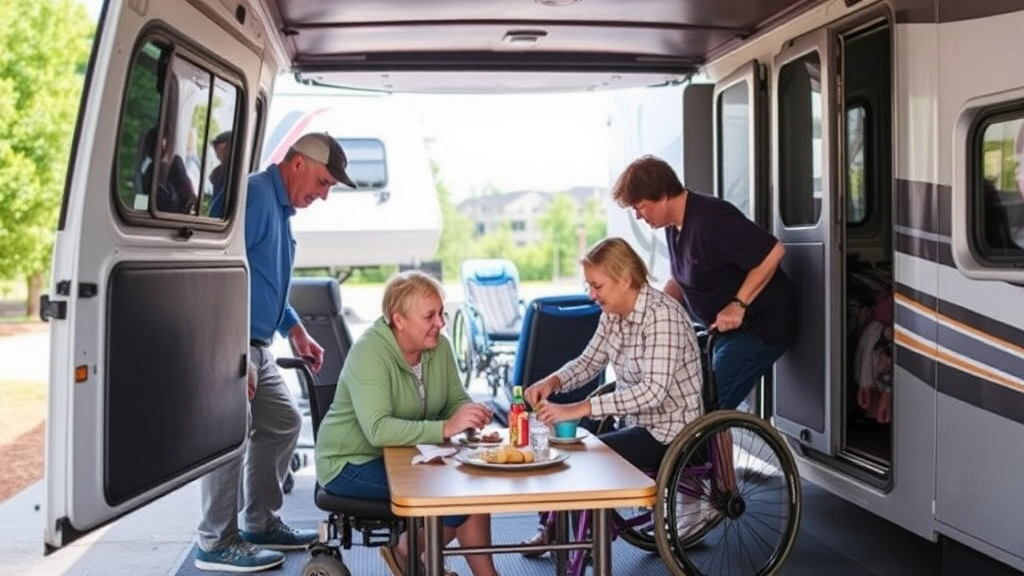
Worried about how your child with special needs will get to camp safely?
You’re not alone.
Transporting campers with special needs can be a big concern for many parents. But don’t stress, mate. Let’s break it down.
Why It’s Crucial
Safety is always a top priority. And when it comes to kids with special needs, it’s even more important.
But how do camps ensure this?
Specialised Vehicles
Most reputable camps have specialised vehicles. These aren’t just your regular buses.
- Wheelchair-accessible vans: These make it easy for kids with mobility issues.
- Sensory-friendly spaces: Some vehicles are designed to be quiet and less overwhelming.
- Extra safety features: Think harnesses, seatbelts, and more.
Trained Staff
You wouldn’t want just anyone driving your kid around, right?
- Certified drivers: These folks know their stuff.
- Special needs training: The staff are trained to handle various situations.
- First aid skills: They can manage minor medical issues on the go.
Communication is Key
Let’s keep it real. You need to be in the loop.
- Daily updates: Some camps offer daily texts or emails.
- Direct contact: You can call the driver or staff anytime.
- Emergency protocols: Clear plans in place if something goes wrong.
Personal Stories
I remember chatting with Sarah, a mum whose son has autism. She was super anxious about camp transportation. But after a few days, she saw how well the staff managed everything. Her son even made a new friend on the bus!
Things to Ask
Before you sign up, ask the camp these questions:
- What vehicles do you use for special needs kids?
- How are your staff trained?
- What’s your communication plan with parents?
Parental Involvement in Transportation
Alright, let’s talk about something that’s on every parent’s mind: parental involvement in transportation for summer camps. We all know the drill â you want your kids to have a blast, but you also want to make sure they get there and back safely. So, how much should you be involved? Let’s break it down.
Real Questions Parents Have
- “Do I need to drive my kid to camp every day?”
- “Is the camp’s transportation safe?”
- “How can I be sure my child is in good hands?”
These are legit concerns, and guess what? You’re not alone. Every parent wants peace of mind when it comes to their child’s safety.
Why Parental Involvement Matters
You being involved doesn’t mean you have to be a helicopter parent. It means staying informed and making smart choices. Here’s why it’s crucial:
- Safety First: You need to know the transportation options and safety measures in place.
- Trust: Building trust with the camp staff and transport providers.
- Flexibility: Understanding the schedules so you can plan your day better.
Steps to Stay Involved
1. Do Your Homework
- Research: Look into the camp’s transportation options. Are they using shuttle services or third-party providers?
- Read Reviews: Check out what other parents are saying. Real experiences can give you insights that brochures can’t. For example, you can explore the JCC Summer Camps to see what other parents have shared.
2. Ask the Right Questions
- Safety Protocols: What measures are in place? Are drivers vetted and trained?
- Emergency Plans: What happens if there’s a delay or an emergency?
- Driver Communication: Can you contact the driver or the camp during transit?
3. Get to Know the Team
- Meet the Drivers: If possible, meet the people who will be driving your kids. A face-to-face introduction can build trust.
- Stay in Touch: Keep open lines of communication with the camp. Regular updates can ease your worries. Camps like Emory Summer Camps have excellent communication protocols in place.
Making It Work for You
- Carpooling: If driving your kid every day isn’t feasible, consider carpooling with other parents. It’s a win-win.
- Flexible Scheduling: Some camps offer flexible drop-off and pick-up times. Find out if this is an option.
- Tech Solutions: Some camps use apps to track transportation in real-time. If available, use it to stay updated.
Real-Life Example
Let me tell you about Jane. Jane was super anxious about her son Timmy’s first summer camp experience. She did her homework, met the drivers, and even set up a WhatsApp group with other parents. By the end of the first week, she was relaxed and confident, knowing Timmy was in good hands.
Field Trips and Activity Transport
Ever worried about how your kid gets to all those exciting field trips and activities at summer camp?
You’re not alone.
Field Trips and Activity Transport is something every parent thinks about.
How do camps ensure safe and reliable transport for all those adventures?
Let’s break it down.
First off, safety is king.
Camps usually have strict protocols to make sure every child is safe and sound during transport.
Think:
- Background checks for drivers
- Regular vehicle maintenance
- Emergency contact lists on hand
But what about the fun stuff?
Field trips are a big part of the camp experience, right?
Whether it’s a trip to the zoo, a hike in the woods, or a day at the beach, transport needs to be smooth and hassle-free.
Here’s how camps usually handle it:
- Dedicated Camp Buses: These are often equipped with seat belts and driven by experienced drivers. They’re like the mobile HQ for the camp day.
- Shuttle Services: Some camps use shuttle services for shorter trips. These can be super convenient for quick jaunts to local attractions.
- Parent Volunteers: Sometimes, parents pitch in to help with transport. It’s a great way to get involved and see what your kid’s up to.
Ever wondered if your child’s camp uses third-party providers?
Many camps do.
They might partner with local transportation companies to handle the logistics.
Here’s why that’s a win:
- Professional drivers who know the area
- Specialised vehicles for different activities
- Flexible scheduling to fit the camp’s busy itinerary
But let’s talk costs.
Field trip transport can add up, and it’s usually factored into the camp fees.
Here’s a quick tip:
Always check if there are any extra charges for special trips.
Some camps include all transport in the upfront cost, while others might have add-ons.
Now, let’s address a common worry:
What if my kid has special needs?
Camps are increasingly inclusive and offer tailored transport options.
- Wheelchair-accessible vans
- Trained staff to assist during trips
It’s all about making sure every camper has a blast.
And hey, don’t forget the fun stories!
Your kid will come home buzzing with tales of their adventures.
These trips are where memories are made.
So, next time you’re thinking about summer camp, remember: Field trips and activity transport are all part of the package.
And they’re designed to be as safe and enjoyable as possible.
Got more questions?
Reach out to the camp directly.
They’re usually more than happy to walk you through their transport plans.
Because at the end of the day, it’s all about creating a summer your kid will never forget.
For more information on how to make the most of your summer camp experience, check out our Parent’s Guide to Summer Camp Transportation and learn about summer camp costs to plan your budget effectively.
FAQs on Summer Camp Transportation
How does summer camp transportation ensure safety?
Safety in summer camp transportation involves qualified drivers, well-maintained vehicles, and supervision. Drivers undergo background checks and special training, while vehicles have regular inspections and safety features like seat belts and first-aid kits.
What qualifications do the drivers have?
Drivers are required to have background checks, special training for handling children, and years of experience.
Are there any emergency procedures in place?
Yes, camps conduct regular emergency drills and maintain direct communication lines between the bus and the camp to handle emergencies effectively.
Why might I consider third-party camp transportation providers?
Third-party providers offer professional drivers, reliable vehicles, and flexibility in scheduling, making them a convenient option for many parents.
What should I look for in a third-party provider?
Check for a strong reputation, a solid safety record, and a balance between cost and quality.
How can transportation scheduling be convenient?
Flexible pick-up and drop-off times, centralised locations, real-time updates, customised routes, and weekend options all contribute to a more convenient transportation experience.
How do camps accommodate campers with special needs?
Camps use specialised vehicles like wheelchair-accessible vans, employ trained staff with special needs training, and maintain strong communication with parents.
What questions should I ask about transportation for special needs?
Inquire about the types of vehicles used, staff training, and the camp’s communication plan with parents.
References
-
Summer Camp Transportation Safety Tips
-
Camp Transportation Safety – American Camp Association
-
Summer Camp Safety Tips – CDC

